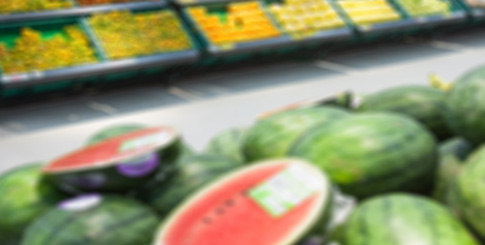Pressure, Differentiation, and Opportunity
Grinstead points out that, just as Amazon’s move into groceries will affect traditional supermarkets, the latter’s move to the online space will also impact Amazon’s prospects.
The Amazon-Whole Foods deal has driven supermarkets to solidify their ecommerce as well as their delivery and pickup services, many through partnerships with Instacart or Shipt, both of which have benefitted in recent months. Instacart has inked several high profile deals, while rival Shipt was gobbled up by Target Corporation in attempt to level the playing field against Amazon.
“I believe Amazon is going to get more pressure, not less, from the online portion of the market as bricks-and-mortar retailers get better at this offering,” Grinstead shares. “The Whole Foods acquisition continues to be a bit of a wild card until there’s more clarity on Amazon’s intentions.”
Meanwhile, retailers benefit by having a strong produce department in their bricks-and-mortar stores.
“No other department can differentiate a retailer like produce,” declares McLaughlin.
Produce gives retailers a positive story to tell about sustainability, local sourcing, authenticity, and health benefits. “These are the things consumers care about,” he explains, adding, “There are many opportunities to differentiate in produce that aren’t possible with dry grocery.”
Upping the experience
“Amazon will drive traditional retailers to provide a much better customer experience for their customers,” Grinstead says. “Today’s consumers and particularly millennials are motivated by the experience, including food and menu inspiration, product demonstrations, a fresh and clean atmosphere, ease of getting in and out, etc. Buying decisions are driven by inspiring experiences more than shopping lists.”
The potential for success in the online world varies by category. Peterson believes consumers will still want to pick out their own produce in some cases, but not necessarily in packaged and processed items such as bagged salad, meal kits, fresh-cut fruit, and the like.
Loose tomatoes, cilantro, or bananas are more of an in-person choice, Peterson reiterates, while potatoes, onions, and celery are easier to trust online. “It’s not necessary for shoppers to pick an item if they trust the brand,” he explains.
“It comes down to ‘do you trust the brand’ or ‘do you want to pick it yourself?’—it’s undeniable that convenience is driving so much of the decision process, especially of the younger consumer,” he says.



